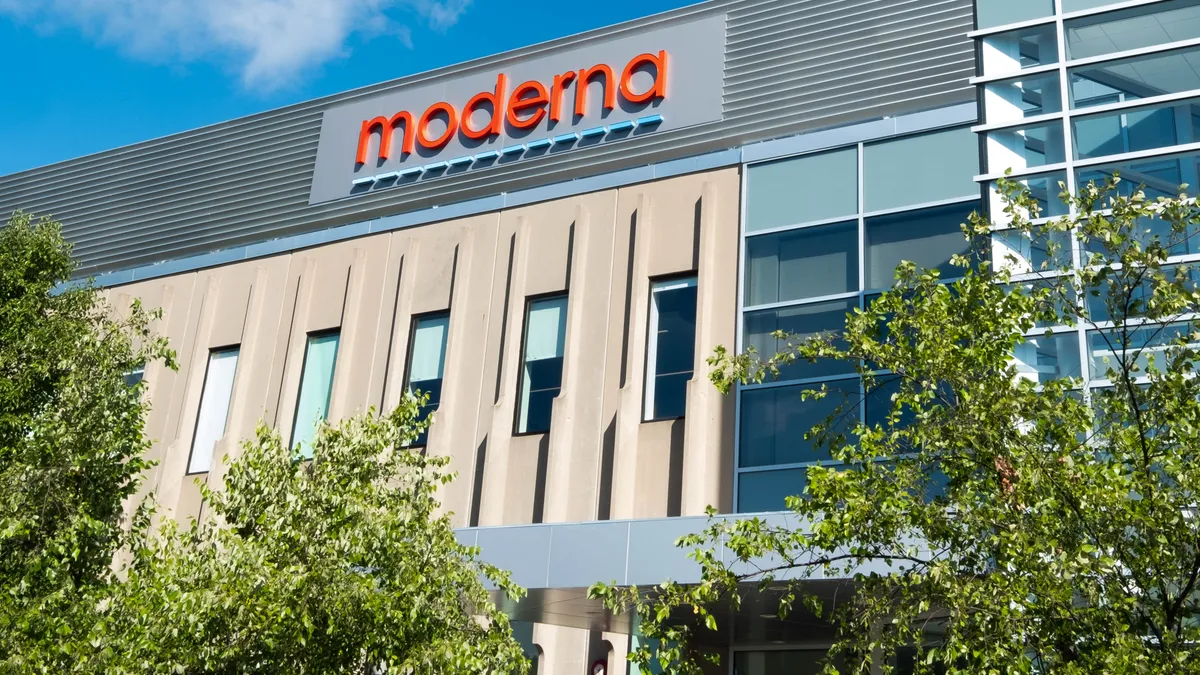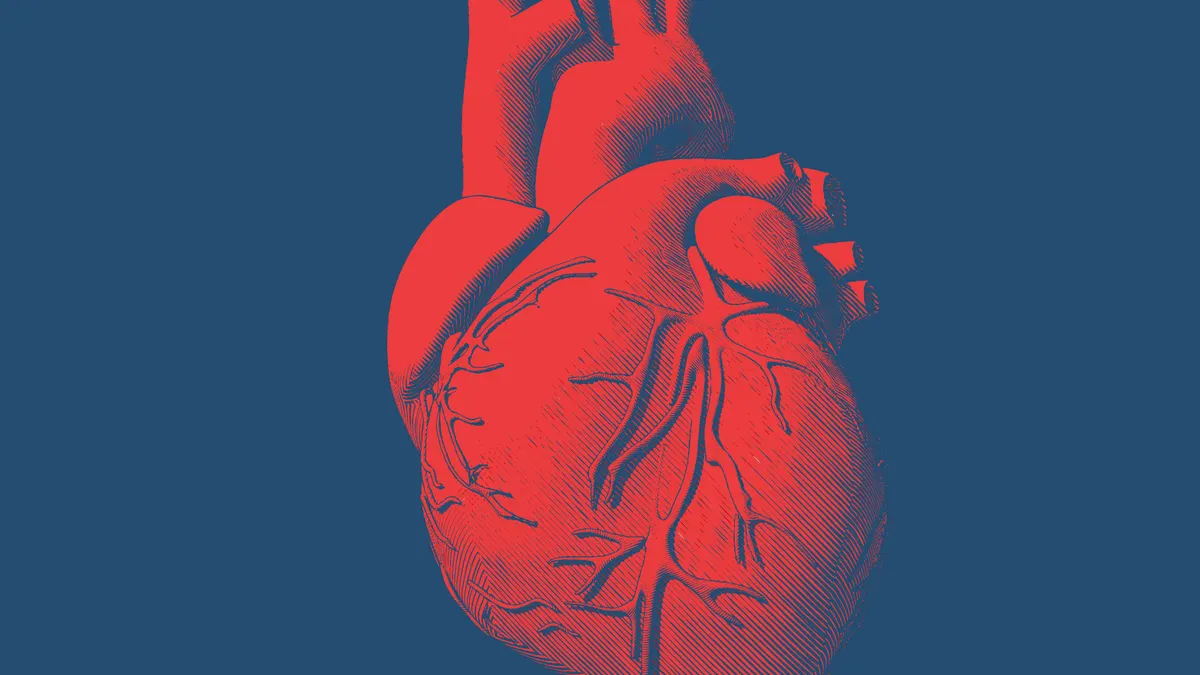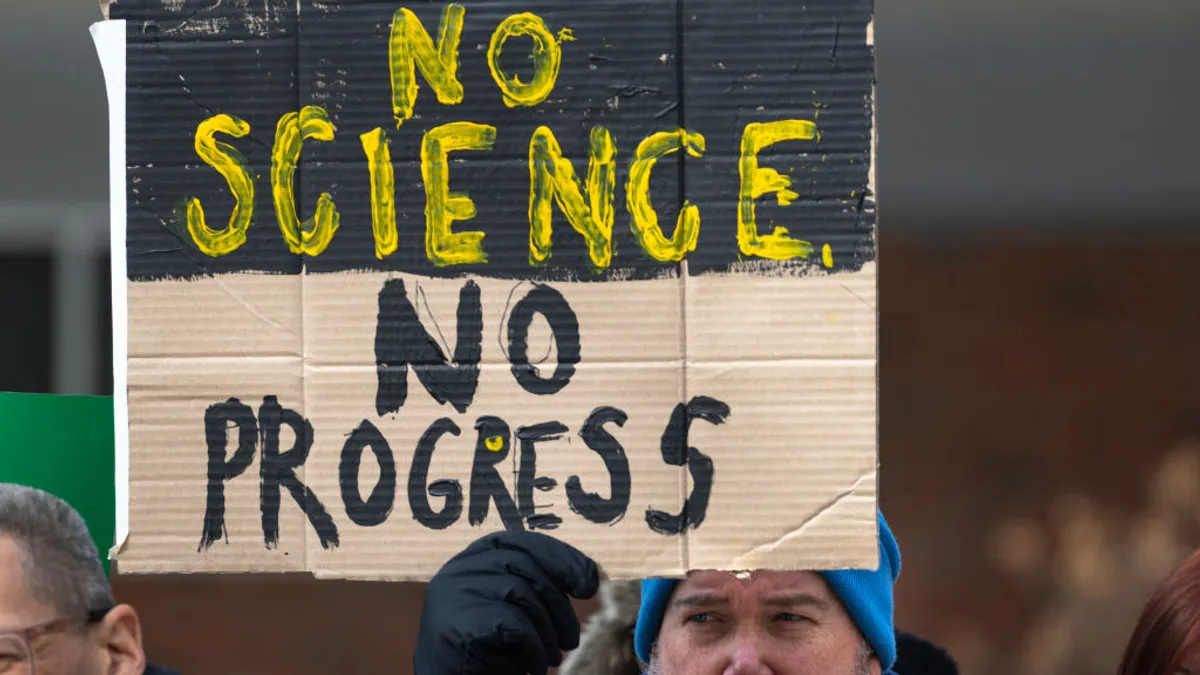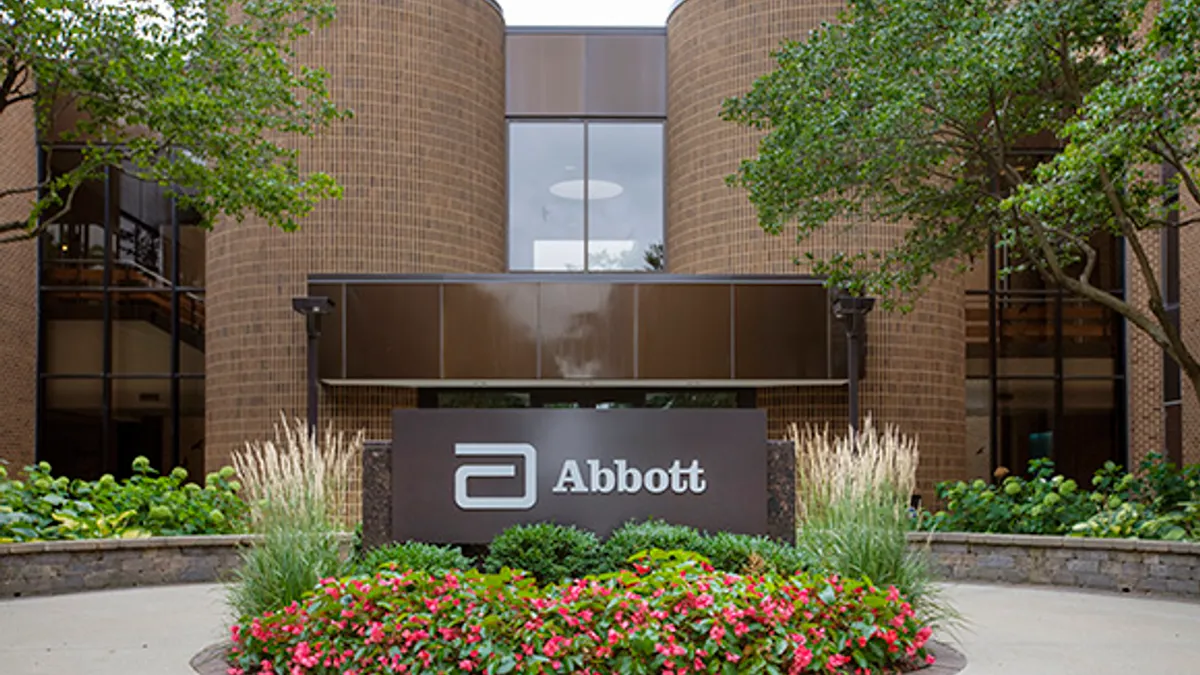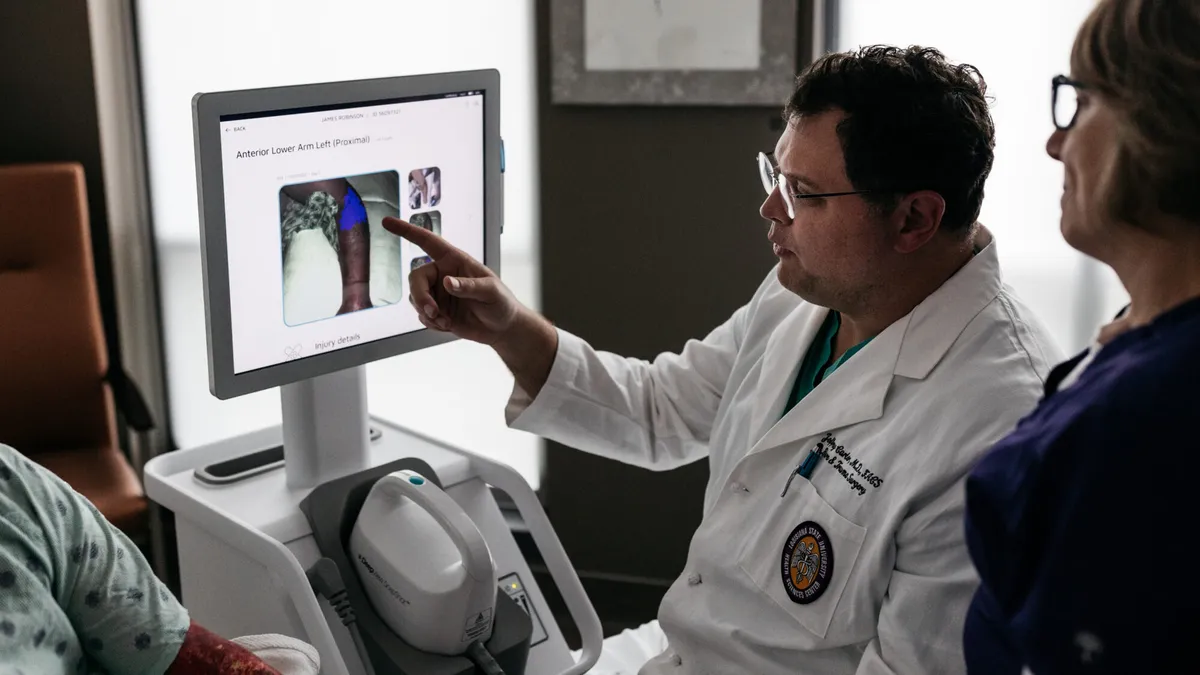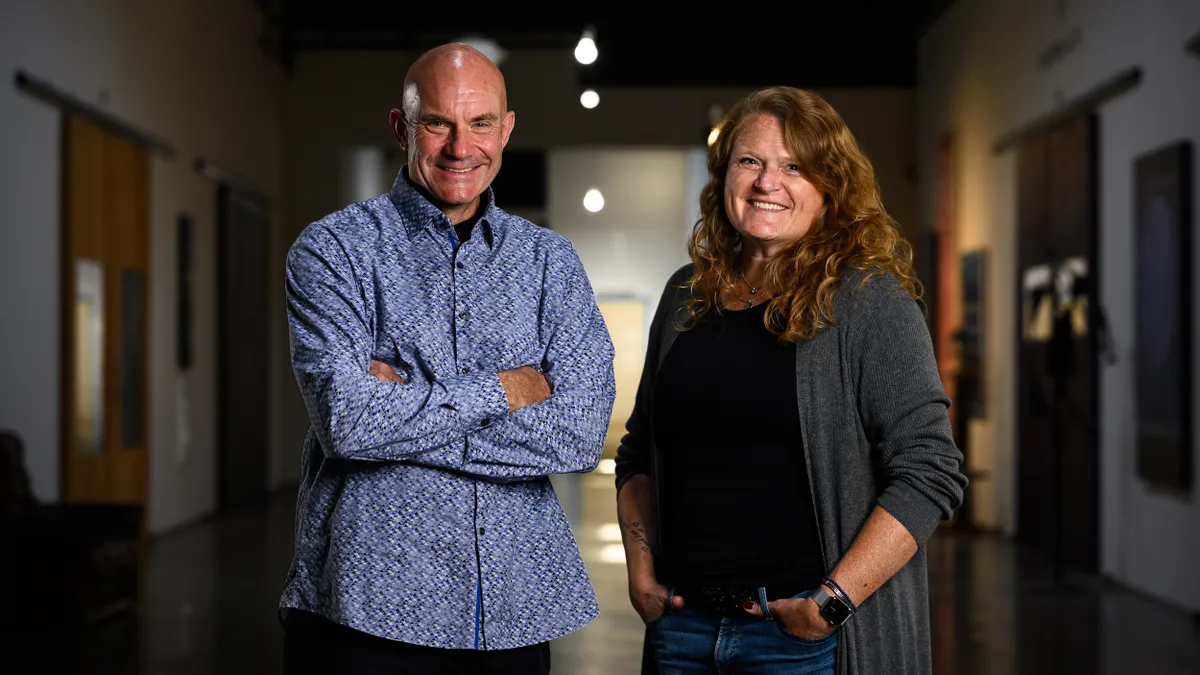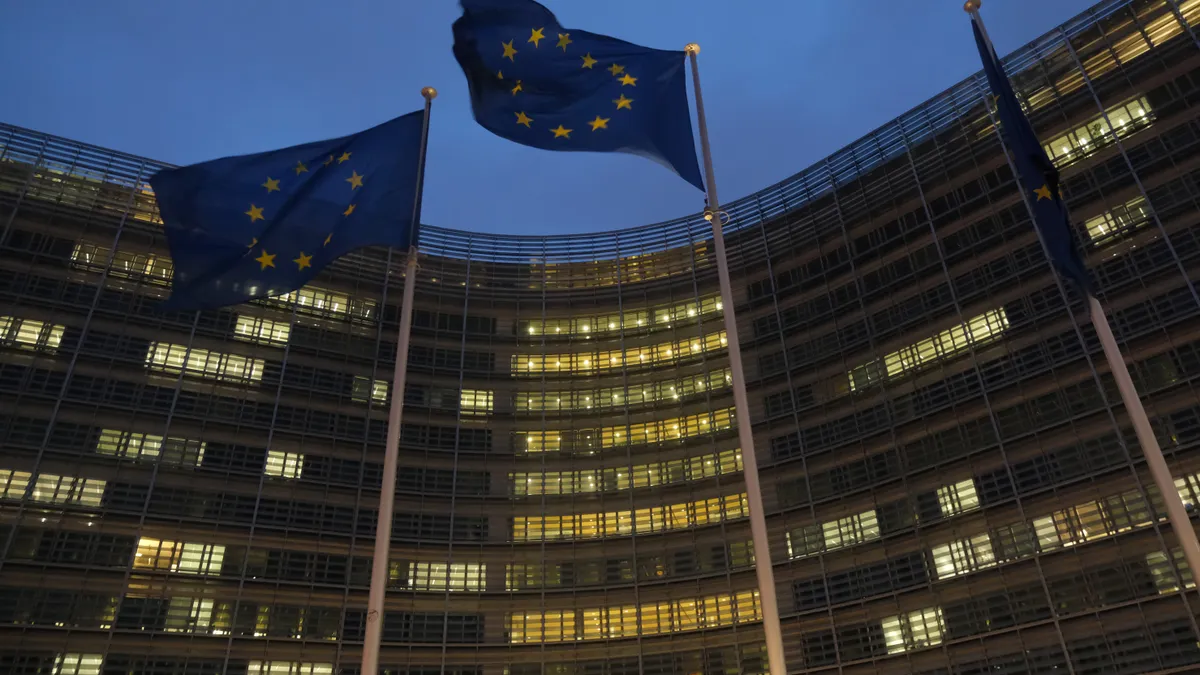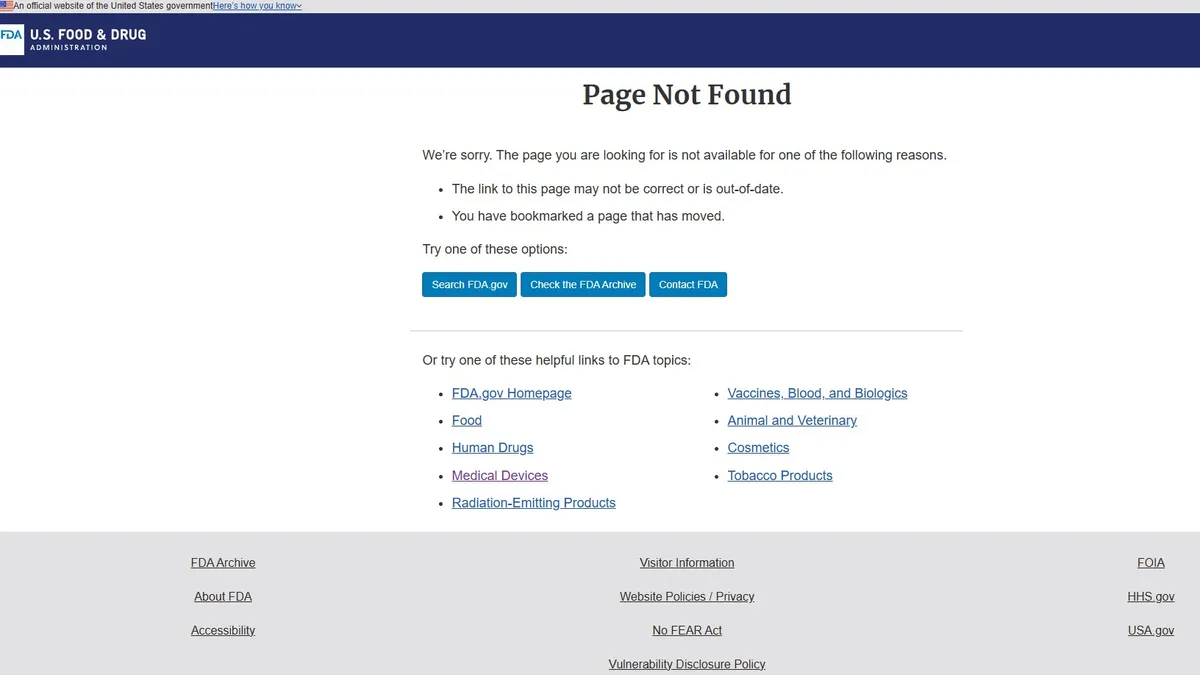An experimental vaccine developed by Moderna and U.S. government scientists protected participants in a large U.S. study from developing COVID-19, a significant and anticipated finding that makes it more likely multiple coronavirus shots may soon be available to help slow the surging pandemic.
The result, which Moderna announced Monday morning, is from an early look at a clinical trial of 30,000 volunteers recruited at nearly 90 hospitals and clinics across the country. An independent committee overseeing the trial found Moderna's vaccine was 94.5% effective at preventing COVID-19 compared to a placebo. Their analysis was based on 95 cases of COVID-19, 90 of which occurred in participants given the placebo versus just five among those who received the vaccine.
Crucially, while 11 participants given the placebo developed severe COVID-19, there were no such cases in vaccinated individuals, suggesting inoculation protects against the worst symptoms of the disease.
So far, side effects to vaccination have mostly been mild to moderate in nature, Moderna said. More severe reactions were observed in smaller proportions of participants, most commonly fatigue, pain, headache and injection site redness after the second vaccine dose. The trial monitoring committee, which reviewed available data, reported no significant safety concerns.
The company plans to seek emergency clearance in the U.S. "in the coming weeks," according to a statement, and will follow up with applications to regulators overseas as well.
Guidelines issued by the Food and Drug Administration require a median of at least two months' worth of safety follow-up for any emergency approval of a coronavirus vaccine — a bar Moderna expects it will meet shortly.
Moderna's success comes just a week after partners Pfizer and BioNTech said their shot was more than 90% effective at preventing COVID-19, an estimate based on 94 reported cases in the companies' own large trial. Pfizer and BioNTech's finding had heightened expectations that Moderna's vaccine, which is based on the same technology, would be similarly effective.
News of the study's results, which are equally strong as those reported by Pfizer and BioNTech last week, put pressure on diagnostics companies, on the theory that a vaccine will diminish the need for testing.
CEO Doug Bryant made a case to investors Thursday that an effective COVID-19 vaccine, when widely available, would not lead to reduced testing demand. Quidel's stock was under pressure last week, dropping 28% after an early look at Pfizer and BioNTech's coronavirus vaccine study. Shares of Quidel were about 4% in early Monday trading.
Moderna's announcement, while another major milestone in researchers' race to develop a vaccine, didn't include important details that will only come with time. It's unclear, for instance, how long the vaccine's protective benefit might last, or whether vaccination protects against infection as well as disease. The estimate for the vaccine's effectiveness may also change as more participants develop COVID-19 in the trial, which will continue through to a final analysis when 151 cases have occurred.
Still, the trial's positive outcome is a resounding achievement at a time when the world needs one, with infections and hospitalizations accelerating in the U.S. and abroad. More than one million Americans tested positive in the seven days from Nov. 8 to Nov. 15, according to data collected by The New York Times.
The results are also a promise kept at the most critical moment for Moderna, after the company spent years touting the world-changing potential of its technology, and after a record-breaking push over 10 months to design, develop and test a vaccine against the new coronavirus.
Moderna was the first coronavirus vaccine developer to reach a number of significant development milestones. The biotech had recently slowed enrollment into its late-stage study, however, in an effort to recruit a more diverse group of participants.
Moderna said Monday that 15 of the COVID-19 cases involved in its interim analysis occurred in people over 65 years of age, while 20 were in people who identify as Black, Hispanic or Latino, Asian American or multiracial. Testing in a range of different groups is important to proving a vaccine can work for everyone, especially communities most at risk from COVID-19.
In meeting the high bar set by BioNTech and Pfizer, Moderna's finding boosts the prospects of an effective vaccine eventually being widely available, since at least several will likely be needed to cover the world's population. All vaccines in human testing, in one way or another, target a spiky protein on the coronavirus surface, making the success of two a strong signal others could follow suit.
"[This] absolutely demonstrates that focusing on the spike protein is the right thing to do," said Moderna's Zaks.
Neither Pfizer nor Moderna have disclosed detailed data, likely because they don't yet have that information in hand. In both cases, the company's announcements followed meetings of data monitoring boards that review trial data independently of the companies. But those specifics will be critical to more fully assess each vaccine's effectiveness and potential utility.
The FDA has said it will convene a panel of expert advisers to publicly review every application for a coronavirus vaccine emergency approval.
Should the FDA clear Moderna's as well as Pfizer and BioNTech's vaccines, supplies this year will be limited to about 50 to 60 million doses in the U.S. — 20 million from Moderna and 30 to 40 million from Pfizer and BioNTech. Each vaccine is given over two shots.
Anticipating short supplies, health authorities in the U.S. plan to prioritize healthcare workers and particularly vulnerable groups until manufacturing capacity ramps up next year. Both Moderna, as well as Pfizer and BioNTech, anticipate they will be able to make many more doses, potentially one billion each, by next year.
Officials leading the U.S. government's vaccine initiative said at a White House press conference on Friday they expect immunizations could begin as soon as December. If all goes to plan, they said, 25 to 30 million Americans could receive a vaccine each month thereafter.
Manufacturing isn't the only challenge, however. Pfizer and BioNTech's shot has to be transported and stored at minus 70 degrees Celsius, or about 94 degrees Fahrenheit. Once thawed, doses can be stored for five days at temperatures between 2 and 8 degrees Celsius. Those limitations may make it difficult for community clinics and pharmacies to store and administer the shot.
Moderna's vaccine, by comparison, must be stored and shipped at minus 20 degrees Celsius. The company said Monday new data indicate the vaccine can be refrigerated at between 2 and 8 degrees Celsius for up to 30 days, longer than the 7-day stability Moderna previously disclosed and an advantage that could permit broader use.
Another key difference that could affect rollout of each vaccine is their developers' ties to the U.S. government. Moderna received roughly $2.5 billion in funding through the Trump administration's Operation Warp Speed program, which helped the company fund and run its large trial while reserving 100 million doses for U.S. use.
Pfizer, meanwhile, didn't accept U.S. funding for testing and manufacturing, a decision its CEO Albert Bourla has said he made out of concern there'd be "strings attached." Pfizer did, however, pre-sell 100 million doses to the U.S. in exchange for nearly $2 billion.
Like BioNTech and Pfizer's vaccine, Moderna's shot uses a messenger RNA to teach the immune system to recognize the spike protein used by the coronavirus to latch onto and infect cells. Messenger RNA technology hasn't yet led to an approved treatment or vaccine, but has significant potential, representing a new way to make drugs.
Moderna rode interest in that potential to become one of biotech's more mysterious and flashy companies. The company earned the skepticism of some in the industry as it strung together a series of unusually large financing rounds, all while remaining privately held. In 2018 Moderna carried out one of biotech's biggest-ever IPOs, raising more than $600 million.
Over time, the technology behind mRNA medicines evolved, setting the foundation for Moderna's extraordinarily rapid development of a coronavirus shot. Government scientists from the National Institutes of Health were also involved in the vaccine's creation, and the NIH helped conduct an early trial as well as the late-stage study that delivered positive results Monday.
A crucial advantage in mRNA vaccines' favor is they can be made and prepared for testing far faster than traditional shots, allowing Moderna and BioNTech to move much more quickly than is typical.
Other mRNA-based coronavirus vaccines from CureVac, Arcturus and Translate Bio are in clinical testing, while AstraZeneca, Johnson & Johnson and Novavax are far along in testing coronavirus shots using different technology.
Ned Pagliarulo contributed reporting.


